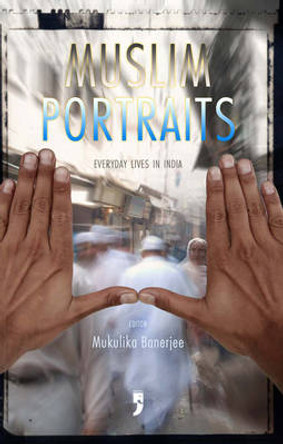Description
Why India Votes? offers a fascinating account of the Indian electorate through a series of comprehensive ethnographic explorations conducted across the country - Delhi, Uttar Pradesh, Bihar, West Bengal, Chhattisgarh, Madhya Pradesh, Tamil Nadu, Kerala, Maharashtra, Gujarat, and Rajasthan. It probes the motivations of ordinary voters, what they think about politicians, the electoral process, democracy and their own role within it. This book will be useful to scholars and students of political science, anthropology and sociology, those in media and politics, and those interested in elections and democracy as also the informed general reader.
About the Author
Mukulika Banerjee is Associate Professor, Department of Anthropology, and Director of the South Asia Centre, London School of Economics and Political Science.
Reviews
'With a new approach to anthropology, Mukulika Banerjee combines intensive field work at local level with statistical materials at the national level. This is a unique study both for India and for democracies in general. It will inform and enlighten us all for years to come. If you are into India, get into this book.' - Meghnad Desai, Emeritus Professor, Department of Economics, London School of Economics and Political Science
'"Why India Votes?" is a very good question indeed. Banerjee's enquiries are always interesting and illuminating, sometimes startling, and are laid out with great skill in this excellent book.' - Jonathan Spencer, Professor of the Anthropology of South Asia and Head of School of Social and Political Science, University of Edinburgh
'This book revitalises the great tradition of political anthropology . . . by combining ethnographic methods with detailed comparative studies within one of the world's largest and most internally diverse societies. It should be read by all scholars of India and all scholars of democratic politics anywhere.' - Arjun Appadurai, Goddard Professor of Media, Culture, and Communication, New York University
"Banerjee (anthropology, London School of Economics and Political Science, UK) offers an anthropologist's analysis of Indians' high electoral turnout (60 percent) despite poverty and illiteracy. India's rural poor actually vote somewhat more than the urban middle class. Banerjee disdains Western analyses that use quantified surveys to discern rational patterns but fail to capture the "messiness" of political life. Instead, she had 12 ethnographers do "thick description" across India during the 2009 general election, interviewing voters in depth. Non-Western feelings about democracy and voting, she claims, are varied and do not fit Western categories. Consistently, Banerjee finds that Indians, especially lower castes and Dalits, love feeling free and equal, however briefly, when politicians have to court them face-to-face. They know that politicians do little for them, but they enjoy the rallies, candidates' charisma and handshakes, colorful posters, and the little payoffs candidates hand out. Elections are fun and serve an entertainment function that affirms life and citizenship that the US could use. Messy, yes, but India's "vote your caste" jest shows a rational/instrumental streak. In 2014, voters fed up with the Indian National Congress Party's failures on the economy and corruption shifted massively to Narendra Modi's Bharatiya Janata Party, just like a Western electorate." --M. G. Roskin, Lycoming College
Summing Up: Recommended. Graduate, research, and professional collections. - CHOICE
Book Information
ISBN 9781138019713
Author Mukulika Banerjee
Format Paperback
Page Count 326
Imprint Routledge India
Publisher Taylor & Francis Ltd
Weight(grams) 394g






